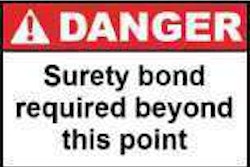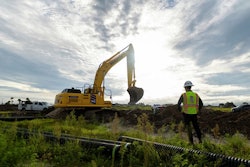The cost of construction materials accelerated dramatically in February after moderating for several months, according to an analysis of producer price index figures released today by the Associated General Contractors of America. As a result, construction firms will be forced to pay more for key materials even as demand for construction remains weak.
“Prices for a wide range of construction inputs rose sharply in February, threatening to put contractors out of business and leave public projects underfunded unless materials can be ordered before prices jump further,” said Ken Simonson, the association’s chief economist. “Contractors had finally begun to cover the modest increases of the last few months but now many of them are facing increases they may not be able to afford, given the industry’s meager margins.”
Simonson noted that the price index for construction inputs — a weighted average of all materials used in construction plus items consumed by contractors, such as diesel fuel and tires on equipment — rose 0.9 percent in February, more than double the 0.4 percent rise in January. He contrasted that jump with the static-to-falling change in the price index for finished nonresidential buildings — a measure of contractors’ bids. Those indexes were unchanged in February for warehouse, school and office buildings and down 0.2 percent for industrial buildings.
“An unusually wide range of construction materials soared in price last month,” Simonson warned. “In addition, high diesel prices are adding to delivery and operating costs.” Simonson cited increases in the price indexes for diesel fuel, 3.0 percent; wallboard and other gypsum products, 5.1 percent (after a 5.9 percent rise in January); copper and brass mill shapes, 5.9 percent; and architectural coatings, such as paint, 10.5 percent. Other major construction inputs with price rises included steel mill products, 0.6 percent; aluminum mill shapes, 1.3 percent; plastic construction products, 2.3 percent; and paving mixtures and blocks, 2.5 percent. In contrast, the price index for concrete products dipped 0.1 percent in February.
Association officials said the acceleration in materials costs will put further pressure on hard hit construction firms that are competing fiercely for a limited amount of work.














